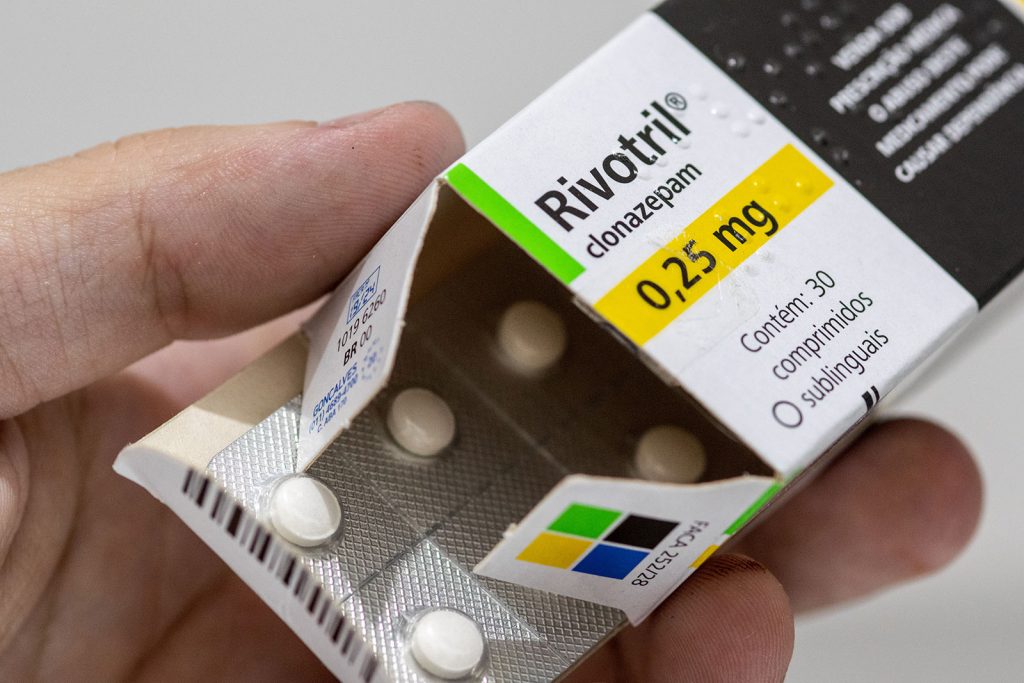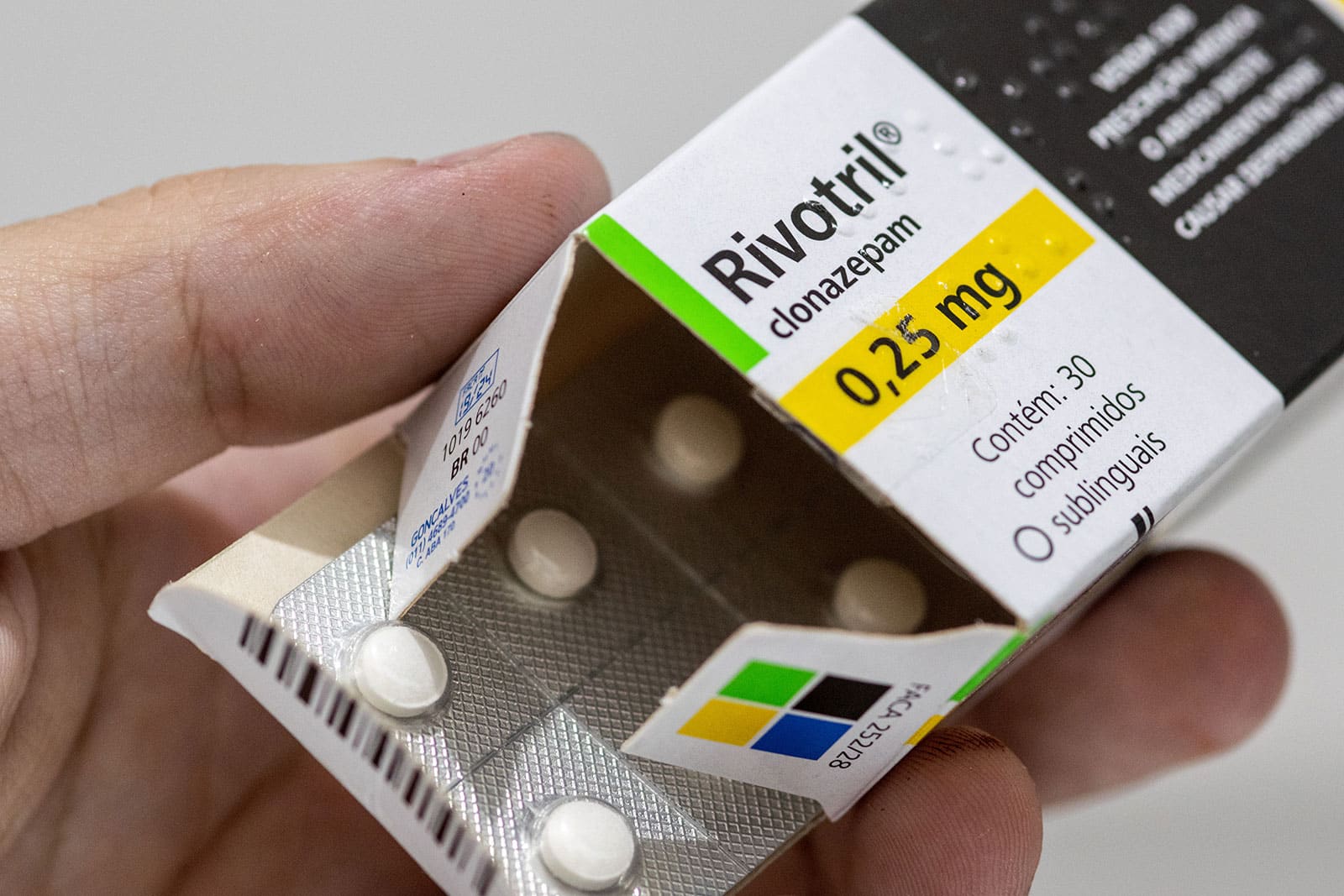Clonazepam and Klonopin are medications that offer relief to people suffering from several mental and physical conditions, but they have a negative side. They are classified on Schedule IV of the Controlled Substance Schedules, and this means that these drugs can potentially be abused. When this occurs, it can be difficult to stop ingesting them.

Table of Contents
Addiction and Abuse
Klonopin is classified as a “benzodiazepine,” and its generic name is “clonazepam.” This means that it is a depressant and a drug that can cause you to become dependent. As a matter of fact, you may have noticed that you were becoming reliant on clonazepam after just a couple of weeks. This doesn’t mean that you were abusing the drug by taking more than your physician prescribed. Many people have become addicted to clonazepam by taking the drug exactly as their doctors directed.
What Is Clonazepam Used to Treat?
Physicians prescribe clonazepam to treat seizures, but it is also prescribed to treat panic attacks and the worry associated with them. Klonopin blocks some of the brain’s receptors, reducing the person’s anxiety and stress. It also makes it easier for people to relax. After an addiction begins, the brain cannot cause the person to relax or feel calm without taking the medication. For this reason, someone with an addiction to clonazepam finds it difficult to stop taking the drug. They cannot function normally if they try to stop.
What Are the Signs of a Klonopin Addiction?
Some of the signs of a Klonopin addiction include the following:
- Legal difficulties or financial troubles
- Disinterest in professional responsibilities or social activities
- Wanting to stop the drug use but finding it extremely difficult to do so
- Continuing to use Klonopin even though it is causing negative consequences
- Extreme cravings for Klonopin
An addiction to clonazepam starts when you need to increase your dose to continue to feel the effects you experienced at smaller doses. This is known as “tolerance.” You may have increased your dose to keep experiencing the effects, or you may have had the desire to use it to get high.
You are compelled to increase your dose even though you are experiencing detrimental physical, mental, relationship and financial effects. It begins innocently enough with a prescription from your physician to treat seizures, insomnia or panic attacks.
Stevie Nicks, the former lead singer of Fleetwood Mac, is one famous example. Ms. Nicks overcame her addiction to cocaine, but her physician prescribed Klonopin so that she could become accustomed to her normal life. It is not recommended that anyone take Klonopin for more than nine weeks, but Ms. Nicks did take it beyond that point because she felt as if she had to do so. When people take Klonopin for longer than one month, tolerance sets in.
During this time, Ms. Nicks put on weight and lost the will to continue her career before she figured out the problem. She realized that the Klonopin was becoming more important to her than anything else in her life. By then, she had developed a habit of taking six Klonopin tablets daily. Now, she believes that Klonopin is more dangerous than cocaine.
If you are experiencing an addiction to clonazepam, you cannot stop taking it at this point. You will begin to experience withdrawal symptoms, and they can be hazardous to your health. In order to stop ingesting clonazepam, you must be under a doctor’s supervision.
What Does Klonopin Do to the Brain?
Klonopin or clonazepam are long-acting benzodiazepines that slow the brain’s activity down so the person can relax. It does so by increasing the amount of GABA that the brain releases. GABA is a neurotransmitter that the brain produces to ease the symptoms of tension and stress. When a person is experiencing tension and stress, adrenaline is present within the brain, so GABA neutralizes it so that the person can experience calmness. If the body permits these neurotransmitters to reproduce unrestrained, the person will experience chronic symptoms of stress and anxiety.
Clonazepam is a medication that scientists developed for the treatment of epilepsy. Then, scientists and physicians noticed that this medication also had the effect of reducing a person’s anxiety very quickly, so it became a medication used to treat panic attacks. Along with anxiety, clonazepam also relieves the withdrawal symptoms that accompany abstinence from alcohol and other addictive substances. Physicians also prescribe it to help relieve their patients’ insomnia, but this is only for short-term use.
Bipolar disorder is one example of a condition that increases the instances of depression and insomnia in people. When they have bipolar disorder, they need more GABA than their brains can ordinarily produce, so physicians began to prescribe clonazepam for these patients for this purpose.
It is not recommended that people take clonazepam as a long-term solution for anxiety or insomnia because it is addictive.
Withdrawal and Detox
The nature of a substance addiction is the fact that you cannot stop taking it when you want to do so. That’s because your brain and body do not want this to happen, so they send you highly uncomfortable withdrawal symptoms to prevent it. If you have been taking Klonopin or clonazepam for longer than one month, you may experience the following:
- Seizures
- Muscle spasms and cramping
- Weight loss
- Hallucinations
- Nightmares
- Insomnia
- Hypertension
- Elevated heart rate
These symptoms can appear after you have been taking clonazepam daily at high doses for at least six months. It is known as “syndrome reemergence” according to the Journal of the American Board of Family Medicine. When you experience the withdrawal symptoms listed above, you have been taking Klonopin or clonazepam for too long a period of time.
The story of another Klonopin user demonstrates the difficulty that people have for terminating the use of the medication. This particular user gave an interview to ABC News in which he stated that he finished tapering off of Klonopin after six weeks, but he began to experience withdrawal symptoms one day after he finished the taper. He was disoriented, confused and had numbness in his legs. Now, his limp is permanent.
The Vice Chairman of the National Council on Alcoholism and Drug Dependence stated that Klonopin is an extremely dangerous drug to overcome because of stories like the one cited above. It is a drug that takes several years to defeat, and even when people manage to do this, they can be left with memory issues or dementia.
You can taper off of clonazepam, but as was demonstrated above, this may not keep the withdrawal symptoms from appearing. These symptoms can be very dangerous, so it is in your best interests to check into the medication-assisted treatment program at ReCreate Life Counseling. While you are in this program, our medical staff will supervise you at all times. Most importantly, we can prescribe medications that will relieve your withdrawal symptoms so that your body can go through the detoxification process comfortably. It is imperative that you enter the detoxification process first because it will give you the best chances of completing treatment for your substance use disorder.
Treatment and Rehab
At ReCreate Life Counseling, we can offer you several types of therapies that will break your psychological dependence on clonazepam. When you are psychologically dependent upon a substance, we are referring to the emotions and the behaviors that go along with taking the substance.
After you complete the detoxification program, we can place you in a residential treatment program where you will have the benefit of several types of therapy. For example, our therapists offer individual therapy, group therapy, trauma therapy and holistic treatments.
If you have never received therapy for your substance use disorder, our residential treatment program would be an excellent option for you. This is where you will learn the skills that you need to live a sober life again. Most importantly, you will learn about your triggers that encourage you to take either Klonopin or clonazepam.
You may have completed a residential treatment program in your past. If you still believe that you need therapy, this is not because your residential treatment program failed. It is because you need to continue with your treatment in a different type of program. At ReCreate Life Counseling, we can provide other types of treatment for you.
Our intensive outpatient therapy gives you a way to continue your treatment, but this time, you will be able to remain at home. It offers you the best of both worlds because you will have the structure that treatment programs provide, and you can also return home to attend to your family and other obligations. Relapse prevention is highly necessary at this stage, and you will have relapse prevention services as well as cognitive behavioral therapy for this purpose.
If you are struggling with an addiction to Klonopin or clonazepam and would like to overcome this burden, contact us at ReCreate Life Counseling today.


